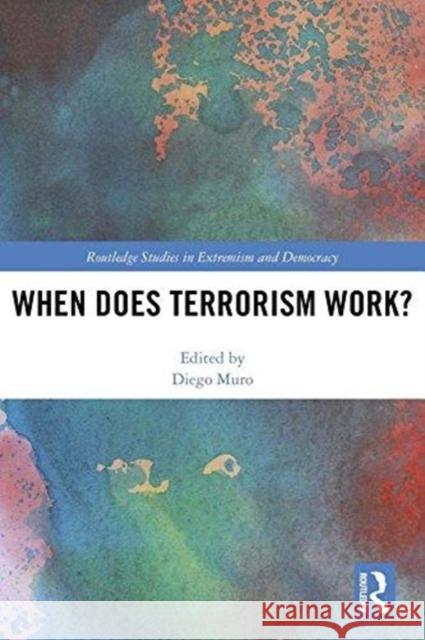When Does Terrorism Work? » książka
When Does Terrorism Work?
ISBN-13: 9781138123502 / Angielski / Twarda / 2018 / 194 str.
When Does Terrorism Work?
ISBN-13: 9781138123502 / Angielski / Twarda / 2018 / 194 str.
(netto: 720,05 VAT: 5%)
Najniższa cena z 30 dni: 654,86
ok. 16-18 dni roboczych.
Darmowa dostawa!
From ISIS to Canada or France, terrorism continues to dominate headlines and international politics. But far more has been written about the definition and causes of terrorism than about its effectiveness as a method of bringing about political change. Debates about the effectiveness of terrorist methods have begun to emerge prominently in recent years. Whereas targets and victims of terrorism maintain that terrorism does not work, its practitioners and apologists claim that it does. The field is also divided, with scholars arguing that terrorism is a useful tactic in creating a sense of empowerment and political mobilization and others contending that terrorists have little to show for their efforts except for fleeting attention and evanescent publicity. But if terrorism is so ineffective, why has it persisted for centuries and indeed become an increasingly popular means of violent expression in the 21st century? This book will reflect on why the issue of terrorism's effectiveness is so important, why it has so far proved difficult to answer it satisfactorily in the scholarly field, how we might better frame our approach to the subject in the future, and what a persuasive answer to this vital question might actually look like in practice. This book will be of interest to students, scholars and practitioners working in the areas of political science, international relations and terrorism studies.











